Unpaid Commissions & Final Paycheck Lawyer
You closed the deal. You hit your quota. But when you check your pay stub, the money is missing. Or worse, you were fired just before a big payout, and your boss says you “forfeited” your earnings.
This is a form of wage theft. Your earned commissions are wages, not an optional bonus. As an unpaid commissions lawyer, I fight to get salespeople the money they are owed.
Your Commissions Are Legally Protected Wages
The law is clear: earned commissions are wages, just like an hourly salary. Your employer cannot simply decide not to pay you. The terms are set by your employment agreement. Any failure to pay you is a potential breach of the sales commission agreement.
Common Excuses for Unpaid Commissions
A commission dispute attorney sees the same excuses from employers. They use confusion to keep money that belongs to you.
- Vague or Verbal Agreements: You were promised a percentage, but nothing was in writing. Now, after a big sale, your boss disputes the amount.
- Firing Before Payout: You close a huge deal. Your boss fires you one week before the client’s payment arrives, claiming you must be “employed” on the payout date. This is a classic “bad faith” termination. You did the work. You earned the wage.
- Changing the Commission Plan: You are about to hit a big bonus. The company suddenly issues a new plan that raises your quota or cuts your rate. Your employer cannot retroactively change the plan for sales you already made.
- Unfair Deductions: Your check is short due to “business costs” or “chargebacks.” These deductions are illegal unless they are explicitly and clearly detailed in your written agreement.
What About Your Final Paycheck?
This fight often happens when you are leaving the company. This creates a second legal problem: violation of final paycheck laws.
When is the Final Paycheck Due?
Federal law is weak. It only requires payment by the next regular payday.
This is why final paycheck laws by state are so important. Many states are much stricter.
- If You Are Fired: States like California and Illinois require your final check on your last day. Texas gives your employer six days.
- If You Quit: The rules change. In California, if you give 72 hours’ notice, your pay is due on your last day. In New York or Texas, it is due by the next regular payday.
Your final check must include all earned compensation. This means your final wages, your unpaid commissions, and in many states (like California and Illinois), your accrued, unused vacation time.
How an Unpaid Commissions Lawyer Can Help
Trying to fight a former employer alone is difficult. An experienced lawyer takes immediate steps to recover your wages.
- We Analyze Your Agreement: We find the exact language that defines when your commission was “earned.” This is the key to your case.
- We Calculate Your Full Damages: We do not just ask for the missing pay. In many states, you can recover double or even triple the amount owed as a penalty. We also demand that the employer pay your attorney’s fees.
- We Send a Demand Letter: A formal letter from a law firm shows you are serious. It outlines the legal claims and often results in a fast settlement.
- We File a Lawsuit: If the company still refuses, we will file a wage and hour lawsuit to hold them accountable.
What to Do If You Are Owed Money
- Gather Your Documents: Collect your commission agreement, pay stubs, sales reports, and any emails with your manager about your sales or pay.
- Send a Written Request: Email HR and your former manager. Clearly state the amount you are owed. This creates a paper trail.
- Do Not Sign Anything: Your employer might offer a small severance payment. Do not sign it until a lawyer reviews it. You are probably signing away your right to your full commission.
You Earned It. We Will Fight for It.
We offer a 100% free and confidential consultation. We will listen to your story, review your documents, and explain your options.
Call us at (615) 242-0434 or fill out our online form to get your free case review.
Why Choose Us
Recovered
Cases Won
Lawsuits
Lawyers

